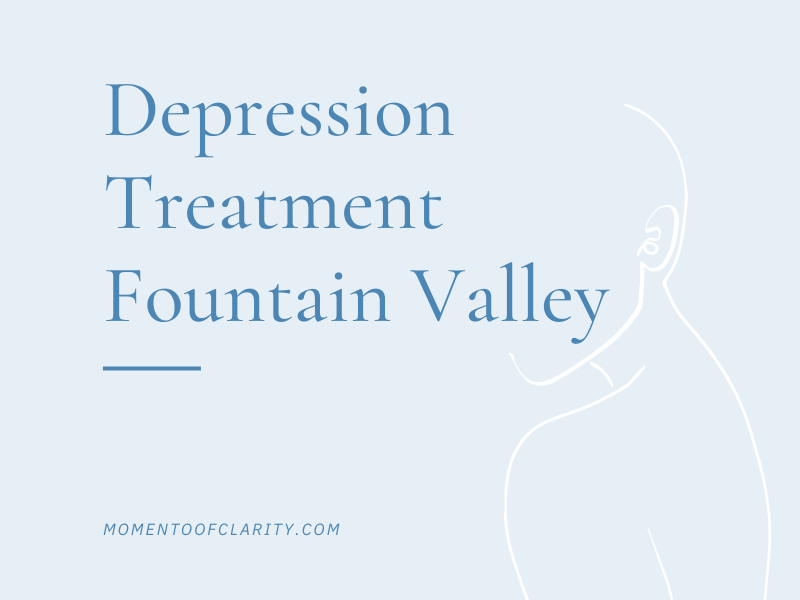
The Importance of Mental Health
Mental health is a crucial aspect of overall well-being. It affects how we think, feel, and act, and can impact our daily lives, relationships, and productivity. Depression, in particular, is a common mental health disorder that affects millions of people worldwide.
Living with depression can be challenging, but it is important to remember that you are not alone. Seeking professional help and exploring treatment options can significantly improve your quality of life and help you regain control over your mental health.
Depression Treatment Helpline 949-997-1775
Therapy Options for Depression Treatment
Therapy is an essential component of depression treatment. Professional therapists and counselors can provide valuable support, guidance, and tools to help individuals manage their symptoms and develop coping mechanisms.
Cognitive Behavioral Therapy (CBT)
Cognitive Behavioral Therapy (CBT) is a widely recognized and effective treatment for depression. It focuses on identifying and changing negative thought patterns and behaviors that contribute to depressive symptoms. CBT helps individuals develop healthier thinking patterns and learn effective problem-solving skills.
Interpersonal Therapy (IPT)
Interpersonal Therapy (IPT) is a short-term therapy that focuses on improving interpersonal relationships. It helps individuals identify and address relationship issues that may be contributing to their depression. IPT aims to improve communication skills, enhance social support, and reduce conflicts.
Psychodynamic Therapy
Psychodynamic therapy explores the root causes of depression by examining unconscious patterns and unresolved conflicts. It helps individuals gain insight into their emotions, thoughts, and behaviors, enabling them to make positive changes and achieve personal growth.
Medication Insights for Depression Treatment
While therapy is a vital part of depression treatment, medication can also be beneficial for some individuals. It is essential to consult with a qualified healthcare professional to determine if medication is suitable for your specific situation.
Antidepressant Medications
Antidepressant medications are commonly prescribed to manage depression symptoms. They work by balancing chemicals in the brain that affect mood. Different types of antidepressants, such as selective serotonin reuptake inhibitors (SSRIs) and serotonin-norepinephrine reuptake inhibitors (SNRIs), may be prescribed based on individual needs.
Combination Therapy
In some cases, a combination of therapy and medication may be recommended for optimal results. This approach can provide comprehensive support by addressing both the psychological and physiological aspects of depression.
Self-Care Strategies for Depression
Self-care plays a crucial role in managing and preventing depression. Incorporating healthy habits into your daily routine can help improve your overall well-being and reduce the risk of depressive episodes.
Regular Exercise
Engaging in regular physical activity releases endorphins, which are natural mood boosters. Exercise can also improve sleep quality, increase energy levels, and reduce stress and anxiety.
Healthy Diet
Eating a balanced diet rich in fruits, vegetables, whole grains, and lean proteins can provide essential nutrients for brain health. Avoiding excessive sugar, caffeine, and processed foods can help stabilize mood and energy levels.
Sleep Hygiene
Establishing a consistent sleep routine and practicing good sleep hygiene can significantly impact mental health. Aim for 7-9 hours of quality sleep each night and create a relaxing bedtime routine to promote better sleep.
Holistic Healing Approaches
In addition to therapy, medication, and self-care strategies, many individuals find holistic healing approaches beneficial in managing depression. These approaches focus on treating the whole person—mind, body, and spirit.
Meditation and Mindfulness
Practicing meditation and mindfulness techniques can help calm the mind, reduce stress, and enhance self-awareness. These practices encourage living in the present moment and cultivating a sense of inner peace.
Yoga and Exercise Therapy
Yoga combines physical movement, breath control, and meditation, promoting relaxation and reducing stress. Exercise therapy, including activities like dance or tai chi, can also improve mood and overall well-being.
Alternative Therapies
Alternative therapies such as acupuncture, herbal supplements, and massage therapy may complement traditional treatments. While scientific evidence for their effectiveness in treating depression is limited, some individuals find them helpful as part of their holistic healing journey.
Depression Treatment Near Me
Fountain Valley, California, offers a range of depression treatment options to support individuals in their mental health journey. Whether through therapy, medication, self-care strategies, or holistic healing approaches, there is hope and help available. Remember, seeking professional guidance is essential, and finding the right treatment plan may take time. With determination and support, you can overcome depression and reclaim your well-being.



